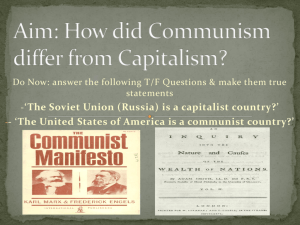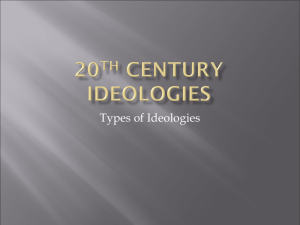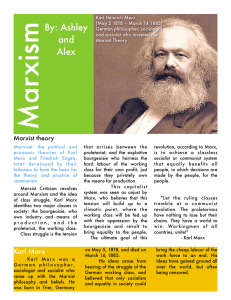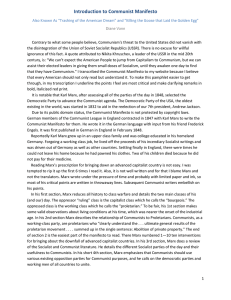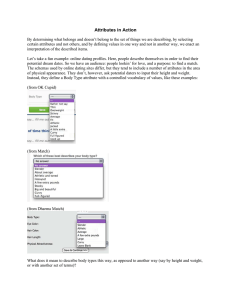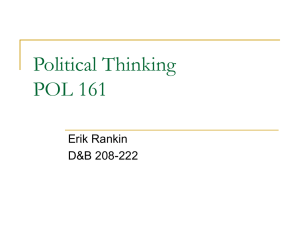KARL MARX
advertisement
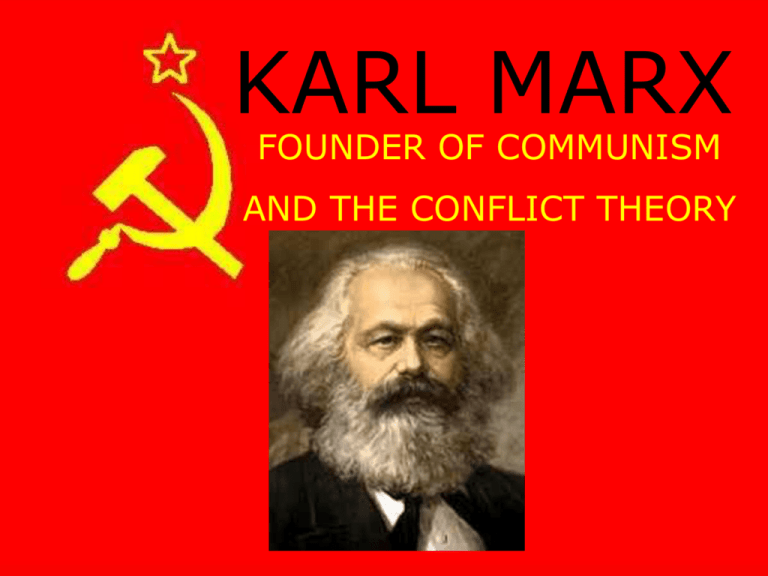
KARL MARX FOUNDER OF COMMUNISM AND THE CONFLICT THEORY KARL MARX • Born in Germany 1818 • Began attending Socialist meetings in Germany • Wrote The Communist Manifesto with Friedrich Engels • Though ignored in his life, his ideas gained rapid acceptance after his death in 1883 Karl Marx: Personal • • • • Full Name: Karl Heinrich Marx Birth: May 5th, 1818 Death: March 14th, 1883 Enrolled in the University of Bonn studied Law • Married Jenny von Westphalen and had several kids, many of which died at a young age • Daughter Eleanor was a committed socialist who helped in the editing of her fathers works G. W. F. Hegel • Influenced Marx •Theorized that a thought could not be separated from its opposite •Believed unity could only be achieved by equalizing all opposites •History should be viewed dialectically, through clash of opposing forces THE COMMUNIST MANIFESTO • Pamphlet written by Marx & Engels • Summarized the inevitable revolution, communist society that would be born from it “The history of all hitherto existing society is the history of class struggles.” “Let the ruling classes tremble at a Communistic revolution. The proletarians have nothing to lose but their chains. They have a world to win. Working men of all countries, unite!” MARXISM The theory of the nature of history and politics as well as a prescription for revolutionary action to bring the industrial working class to power and create a classless society. Society divided into two distinct classes: Bourgeoisie class of capitalists (ruling class) Proletariat class of wage labourers (working class) Marx’s Theory •Economics formed basis of human activities, determined who had power in society • Believed working class (proletariat) was oppressed by the ruling class (bourgeoisie) • Marxist Dialectical Method: existing social arrangement, (thesis), generates its social opposite, (antithesis), and a different social form, (synthesis), emerges from the struggle between the two to achieve a classless socialist society: 1.) Abolish property in land 2) Raise income taxes 3) Abolish inheritance rights 4) Confiscate emigrant/rebel property 5) Centralize Credit 6) Centralize means of communication 7) Extension of factories, cultivate wastelands 8) Equalize liability to all labourers 9) Abolish distinction between town and country, equalize population distribution 10) Free education for children, abolish child labour Bibliography Engels, Friedrich and Karl Marx. The Communist Manifesto. Trans. Samuel Moore. London: Penguin Books, 1967. Feinberg, Barbara S. Marx and Marxism. New York: Franklin Watts, 1985. “Karl Marx.” 20 Dec. 2004. 17 Feb. 2005. <http://www.spartacus.schoolnet.co.uk/TUmarx.htm>. McClellend, Kent. “Conflict Theory.” 21 Feb. 2000. 17 Feb. 2005. <http://web.grinnell.edu/courses/soc/s00/soc11101/IntroTheories/Conflict.html>.



